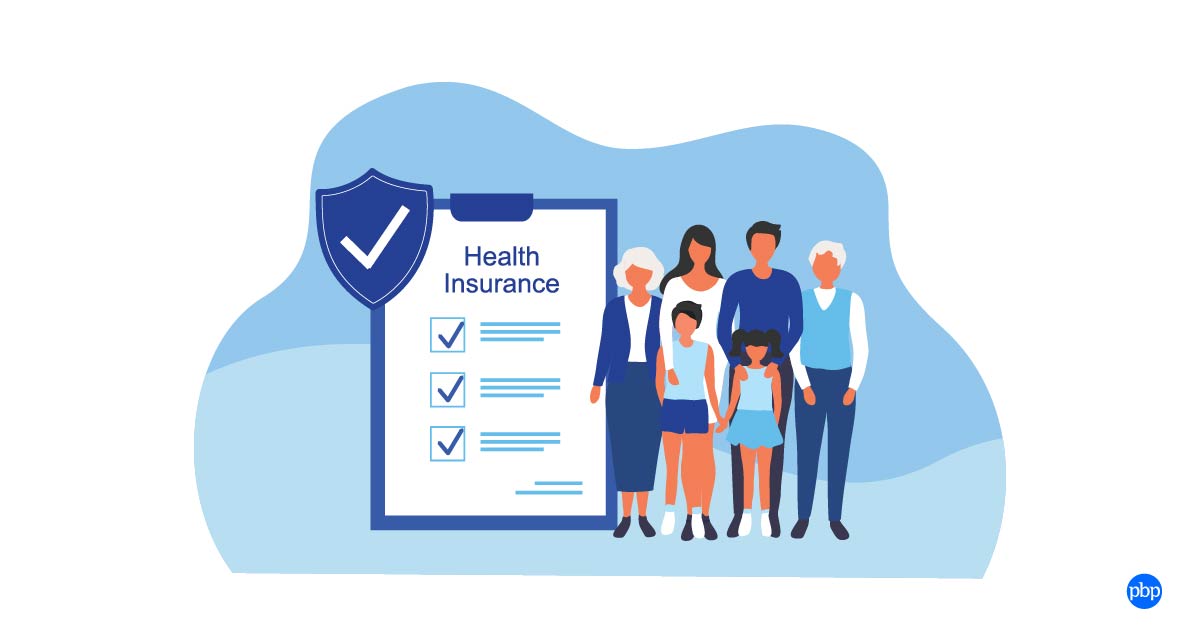Group Mediclaim (GMC) policy is a type of health insurance policy that offers medical coverage to a group of people, typically offered by an employer, an organization, or an association.
It acts as a safety net for the health and well-being of employees or members, offering them protection against medical emergencies without the need for individual health insurance plans.
What Does GMC Policy Cover?
A GMC policy typically covers the following:
Hospitalization Expenses
It covers inpatient hospital costs such as room rent, nursing charges, surgery fees, etc.
Pre and Post-Hospitalization
The policy may cover medical expenses incurred before and after hospitalization, including diagnostic tests and follow-up visits.
Daycare Procedures
With the advancement of medical technology, many procedures are done on an outpatient basis. GMC policies may cover such daycare treatments that don't require overnight hospitalization.
Cashless Treatment
Most GMC policies allow members to avail of cashless treatment at network hospitals, reducing the financial burden during emergencies.
Maternity Benefits
Some GMC policies include maternity benefits, covering delivery costs, both normal and caesarean, along with expenses related to newborn babies.
Ambulance Charges
Coverage for ambulance services is often included, helping to transport patients to the hospital in critical situations.
Critical Illness Coverage
Many GMC policies extend coverage for critical illnesses such as cancer, heart attacks, strokes, and other life-threatening conditions.
Health Check-ups
Some policies provide regular health check-ups as part of their benefits, which helps in the early detection of potential health issues.
Benefits of GMC Policy
A Group Mediclaim (GMC) policy provides several advantages, not only for the members but also for employers or organizations offering the coverage. Here are the key benefits:
1. Cost-Effective: Affordability is one of the primary benefits of a GMC policy. Since the risk is spread across a group, the premium rates are generally lower than individual policies. This makes it an attractive option for employees and organizations looking to save on health insurance costs.
2. No Medical Check-ups: Unlike individual health insurance policies where medical check-ups may be required, most GMC policies do not require a medical exam for enrollment, making it easier and quicker to get coverage.
3. Comprehensive Coverage: GMC policies offer more comprehensive coverage than individual health insurance plans, including extensive hospitalization benefits, pre and post-hospitalization expenses, maternity benefits, and more.
4. Tax Benefits: Employers offering GMC policies to employees may benefit from tax deductions under section 80D of the Income Tax Act. Additionally, insured individuals may also be able to claim tax deductions if they contribute to the premium amount.
5. Wider Network of Hospitals: Most GMC policies are tied to extensive hospital networks, allowing employees to access cashless treatment at a variety of reputed hospitals and clinics across the country.
6. No Age Restrictions: Unlike individual health plans that may impose age restrictions or premiums based on age, GMC policies typically do not have strict age limits, making them accessible to a broader demographic, including older employees.
7. Family Coverage: Many employers provide GMC policies that cover not only the employee but also their family members—spouse, children, and sometimes even dependent parents—under a single policy.
8. Employee Retention and Satisfaction: For employers, offering GMC policies is an effective way to enhance employee satisfaction and improve retention rates. Employees are more likely to stay with an organization that takes care of their health and well-being.
9. Easy Claims Process: The claims process in a GMC policy is usually streamlined and hassle-free, especially with cashless facilities at network hospitals. This ensures that employees are not burdened with upfront payments during medical emergencies.
10. Health & Wellness Incentives: Many organizations now offer additional health and wellness benefits through GMC policies, such as free health check-ups, mental health support, or wellness programs, to further boost employee well-being.
Conclusion
A Group Mediclaim (GMC) policy offers significant advantages, both for individuals and organizations. It provides cost-effective health coverage, comprehensive protection, and an easy claims process, making it an ideal option for employers looking to provide health security for their employees. For employees, it ensures they have access to healthcare without the high premiums of individual policies, along with several added perks like family coverage and tax benefits.
By offering GMC policies, organizations can improve employee satisfaction, reduce absenteeism, and increase retention, while employees gain peace of mind knowing their health needs are well-covered. Whether you’re an employer looking to enhance your benefits package or an employee looking to understand your coverage, a GMC policy can be an invaluable resource in today’s healthcare landscape.
FAQs on Group Health Insurance
What is a Group Mediclaim (GMC) policy?
A Group Mediclaim (GMC) policy is a type of health insurance that covers a group of people, typically employees of a company, or members of an organization, or association. The policy provides coverage for medical expenses arising from hospitalization, surgeries, and other healthcare needs.
Who is eligible for a GMC policy?
The eligibility for a GMC policy typically includes employees of an organization or members of an association. Family members, including spouses, children, and sometimes dependent parents, can also be included under the coverage.
How does a GMC policy work?
A GMC policy works by pooling the risks of all members in the group. The premium is paid by the employer or the organization, and the coverage is provided to the members. In most cases, employees or members do not need to pay individual premiums, and they can access medical treatment through cashless facilities at network hospitals.









